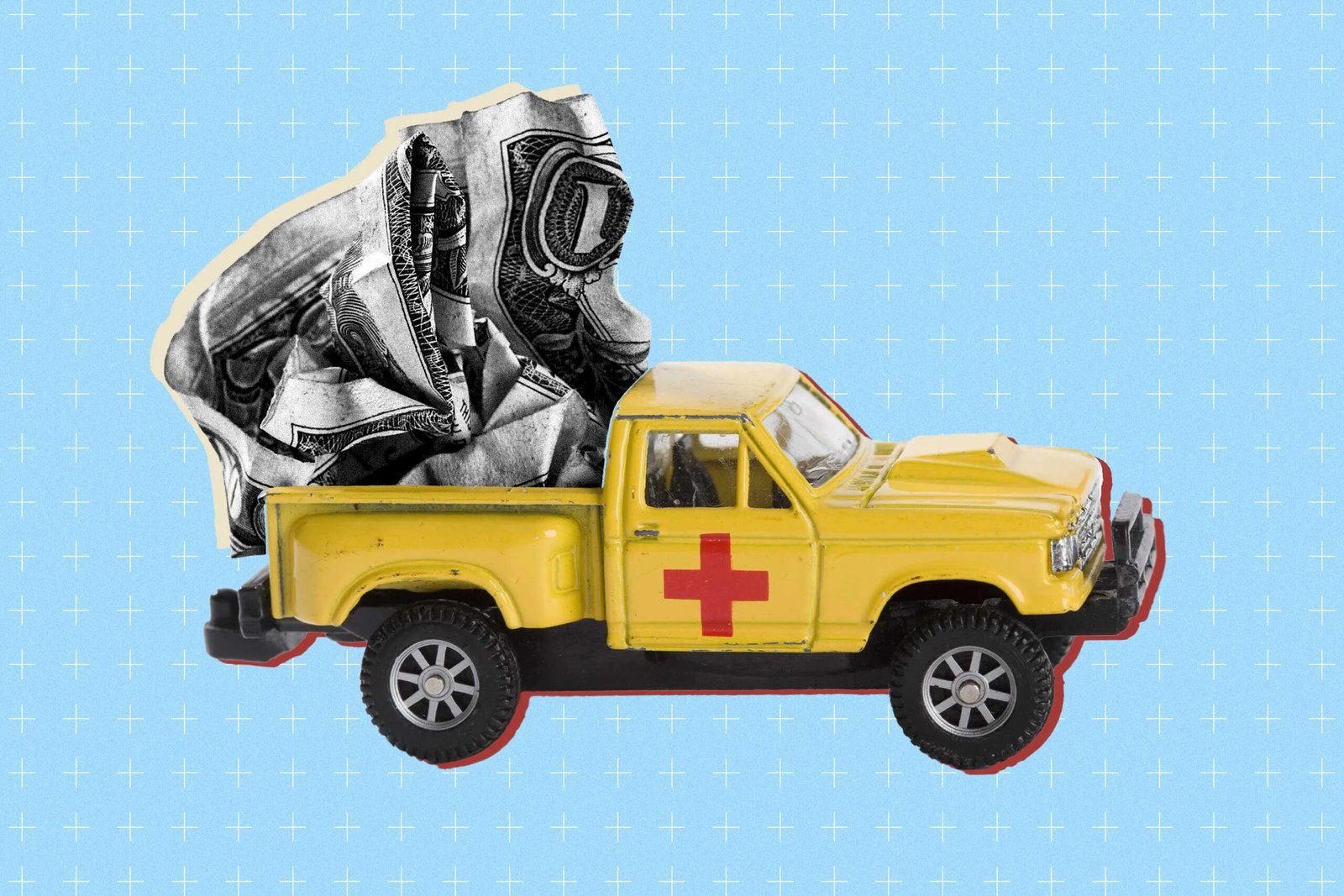You may have heard that medical debt under $500 no longer hurts your credit. This change has benefited millions of Americans, but it’s also led people to wonder: If they don’t count against you, is there any reason to pay small medical bills at all?
The answer is tricky. If you owe $499 or less to a medical provider, you could simply ignore the bill.
But what happens next depends on the actions the debt holder decides to take. In all likelihood, you will receive multiple requests for payment. Expect phone calls or letters in the mail. Eventually, the provider will likely sell the debt to a collection agency.
In the past, the involvement of collectors would cause major issues for patients. Before last year, a collection likely would’ve appeared on your credit report after a period of time, making it harder to qualify for loans or apartments. And prior to July 2022, when the credit bureaus reduced the reporting of medical collections, even a paid medical debt could have remained on your credit report for seven years.
But under pressure from lawmakers and President Joe Biden, the three credit bureaus — Equifax, Experian and TransUnion — voluntarily agreed they would stop reporting medical debts under $500. These collections tradelines were removed from credit reports in April 2023.
(The Biden administration has also proposed a rule to entirely end the reporting of medical debt on credit reports, which would take an estimated $49 billion in medical collections off the credit reports of 15 million people. However, the future of that rule is uncertain with Biden leaving office.)
The policy developments don’t mean hospitals have stopped selling medical debt under $500 to debt collectors. It’s still common to do so when their attempts to obtain payment are unsuccessful. If you have an outstanding bill, you may want to go online and check that specific hospital’s billing and collections policy to understand the consequences of not paying, according to Erin Duffy, director of research training at the University of Southern California Schaeffer Center for Health Policy and Economics.
But the good news for patients is that debt collectors have lost their leverage with medical debts under $500. While they can contact you repeatedly seeking payment, if you don’t mind blocking their calls, they may eventually give up or settle for a reduced payment.
With that in mind, if you’re experiencing financial hardship, letting a medical debt go to collections may be something you’ve considered. In some situations, it may be your last resort.
The bottom line is to be careful and know the risks. Experts tell Money that if you can afford to cover a medical debt, there are still several reasons you may want to go ahead and pay it.
What happens if you don’t pay a medical debt under $500
First of all, a provider could decline to see you in the future for non-emergency care if you owe them money and it’s past due. If you live in an area with a limited number of doctors, burning bridges is a particularly important consideration.
While you should legally always be able to get care at a hospital’s emergency room regardless of your financial circumstances, specialists can terminate the relationship if you don’t pay them.
Also keep in mind that you may not get the best possible care if a hospital knows you have a poor payment record, says Ge Bai, professor of accounting and health policy at John Hopkins.
“Hospitals have these questions in how they treat you or how they don’t treat you,” Bai says. “They can do more, they can do less, and doing more will cost more money … Hospitals have many ways to protect themselves financially.”
All right, but what if the risk of losing access to a particular hospital or health care provider doesn’t matter to you? Is there any real downside to letting a small medical debt go to collections?
Howard Dvorkin, chairman of Debt.com, a consumer financial advisory site, says dealing with debt collectors can be tiring in itself. They can send letters, call you and threaten lawsuits: “Can they get the money out of you? Not really. Is it annoying? Yes,” Dvorkin says.
Can a debt collector sue you over a medical bill?
More seriously, you could be sued for a medical collection under $500, although it’s rare. In most cases, collectors avoid small claims court for these debts due to the filing fees and time commitment.
“The cost is not going to be worth it for these companies,” says Herman Thompson, Jr., a certified financial planner at Innovative Financial Group. “But, you know, you cuss them out the wrong way on the phone, make a big enough enemy — they have a legal right to [sue you].”
Still, Michael Karpman, principal research associate in the health policy center at the Urban Institute, says it’s a real risk.
Studies on medical debt in Maryland, New York, Virginia and Wisconsin have found that while most lawsuits are filed over amounts greater than $500, some litigants do pursue less, Karpman says. In Maryland, for example, 23% of medical debt lawsuits between 2009 and 2018 were for amounts under $500. And that’s significant.
“They could get a judgment for a variety of actions to collect payment, which could include wage garnishments, freezing or seizure of bank account funds, liens on personal property — all the different legal options that are available to people who file a civil lawsuit and receive a judgment in their favor,” Karpman says.
Judgements are also public records that potential lenders can see even if a debt doesn’t appear on your credit report.
Still, the chances of a debt collector suing you for a few hundred bucks are low, experts say. In New York, these lawsuits have largely been banned: They can no longer be initiated against anyone earning less than 400% of the federal poverty level ($58,320 for an individual).
“The risk of lawsuits for debts under $500 is unlikely as the cost of going after that money far outweighs the likelihood the company will actually collect,” Dr. Carolyn McClanahan, a physician and a certified financial planner at Life Planning Partners, writes in an email.
But it is technically an option: “It is just a gamble the debtor will have to live with,” she adds.
Waiting to pay can be beneficial
Sometimes patients in tough financial circumstances pay medical bills with credit cards, but this can be a mistake because if it’s not paid off, the debt will start accruing interest.
And once you put a medical bill on a credit card, the credit reporting protections for medical debt no longer apply. That means if the card becomes delinquent, even debts under $500 can appear on your credit report and hurt your score.
Despite the potential consequences of ignoring a medical debt, there are some advantages to letting the bill go unpaid.
If a debt collector paid pennies on the dollar to get hold of your debt, they’re not always expecting to recoup the full amount, and you may be able to negotiate a reduced payoff to the collector.
That’s why Jane Clark Scharl, a 34-year-old poet living in Detroit who recently negotiated a $700 debt for epidural anesthesia down to $60, says she’s strongly in favor of the additional credit protections around medical debt. She incurred the bill during a childbirth in 2020 when she didn’t have health insurance through an employer and was relying on a religious cost-sharing group.
Scharl says that although she’s a fan of financial responsibility in general, health care is a difficult case because the value of the services received is so murky. It’s hard to rationalize paying exorbitant bills, especially when there are no longer severe consequences.
“Obviously, you don’t want things to go to collections, like that’s not your long-term solution,” she says. “But at the same time, if you can get an 80% discount by waiting, it’s kind of worth it.”
More from Money:
Dollar Scholar Asks: How Should I Handle a Huge Medical Bill?
How Do Medical Bills Affect Your Credit?
White House Plans to Ban All Medical Debt From Credit Reports









